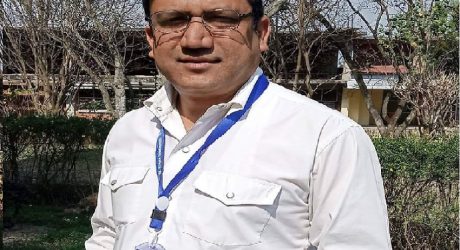I’m a social work student about to go into my second year and the excitement is building. Changes to my degree course mean that we are the first cohort of students who haven’t had any placements in our first year, so I’m becoming a second year without having done any practical work at all. As interesting as the new year will be, the idea of practising social work in this under-resourced system makes me think about how I will cope, particularly in dealing with child protection.
I had never thought seriously about social work as a profession until I watched a BBC Two programme called Protecting our Children, which followed social workers for six months. A case about a young child who ended up being adopted particularly affected me; I understood that the parents didn’t really know what parenting was or what it involved. I was touched, and decided to train as a social worker so I could help families like theirs. I’ve always been interested in communities and how they deal with issues.
I started to learn more about the profession, and realised that it was different to what I’d originally thought it would be. I always thought that you can’t make someone else change, so the idea of social work motivating a person to change was interesting. I kept an open mind; I told myself that people have been doing the job for years, so it must work. And through talking to social workers I realized that they were all rushed off the feet, never able to talk in the day as they were too busy.
Despite this, the profession still seems abstract to me. After one full academic year I have an idea of what theory can be used and how I might deal with stress but I’m still not sure what a social worker actually does. I imagine it’s what a soldier would feel, if sent to battle having being told how to hold a gun, and having seen others hold guns before, but never having shot a gun himself.
It does worry me that I have done a course for a whole year and don’t know what I’m training to actually do. However, I’ve accepted that the course is one that grows with me and I have lecturers and colleagues around me who will guide me. Maybe “worry” is not the right word; it’s more that I acknowledge it and I want to make sure I do know what it is I’m doing by the time I qualify.
In a way, I think our course leaders have chosen to omit the full pressure that comes with the profession because everyone chooses social work for different reasons. If they were to prepare us more I think it would take away from the personal journey of social work. While I’ve learnt little about the everyday life of a social worker, I’ve learnt a lot about myself and how I make the decisions I make. Whatever my day-to-day job will entail, I think understanding myself and my motivations better will make me a calmer and fairer social worker.
Am I ready to go into placement? I’m not sure. Do I know exactly what it is to be a social worker? I have a good idea of what techniques are available and what the law may require of me. Do I know how I’m going to protect the children in Britain? Most definitely not. If I was sent out now to protect a child I’m not confident I could do that correctly every time, and I’m not confident my bosses would either. But that’s why child protection cases are dealt with by teams. I wouldn’t know where to start, so I would lean on my colleagues and tutors.
With there being the most child protection cases since records began, and children’s social workers’ case loads increasing every year, it amazes me how well social workers have coped with the added responsibility and pressure. For a social work student, it’s a lot to take in. I want to do my job and I want to do it well, but being a rookie means I’m going to make mistakes. I’m frightened to make the wrong ones, and that makes me feel like I don’t know yet how to protect children. So it’s good to have two more years to figure that out.
source Guardian




